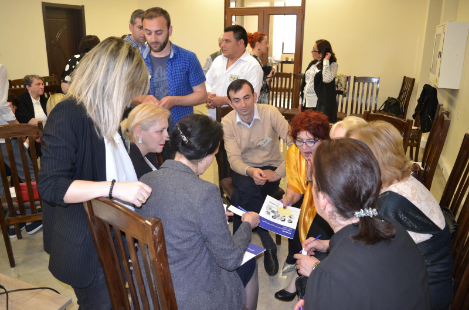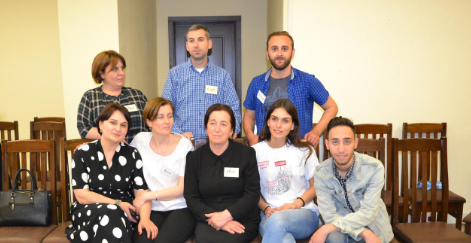The STREAM community advisory board (CAB) in Georgia was created in December 2016. Its members come from various local organisations, including the Patient Union, TB Coalition, and Centre Tanadgoma.

All of the CAB ‘s members have been affected by TB personally. Some have had TB themselves, while others have family members who had the disease. All of the CAB members have a long history of work to eradicate TB, and through their involvement in the STREAM trial, they are making significant contributions to improving TB treatments.
The strength of our CAB lies in the fact that all of its members have had direct experience with TB in their personal lives. Today they continue to work to eradicate TB in their professional lives.
In 2017, approximately 3,400 people developed TB in Georgia, whose population is about 3.9 million. The lengthy standard regimens in Georgia make completing treatment difficult, which often results in significant adherence challenges.
STREAM has the potential to improve treatments for people living with TB, not only in Georgia but throughout the world. Adoption of shortened regimens, like the ones being evaluated in STREAM, would be a “breath of fresh air” for patients and a significant step towards a TB-free country.

From April to June, the Georgia Community Advisory Board participated in many meetings with NGOs and stakeholders. The most significant event was a workshop held in Zugdidi. During this event, the issue of TB in Georgia was addressed and discussions centered around the benefits of participating in the STREAM trial.

The Georgia CAB’s community outreach activities are focused on building collaborative relationships with government officials, NGOs and other stakeholders with the aim of building a coordinated approach to TB management.
Community outreach is central to the Georgia CAB’s mission, helping to generate support from the general public for improved TB treatments and TB research, as well as reducing the stigma that surrounds TB.
